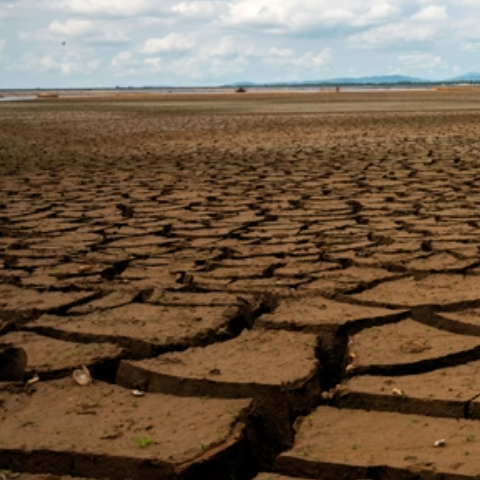Climate Science and Investing
AB has forged a partnership with Columbia Climate School—bringing together climate and investing expertise to work toward a new understanding of new solutions to the mounting challenge of climate change.
Climate Science and Investing
Climate change is creating complex challenges for the planet and financial markets, and momentum is growing to address these risks through commercial, economic and regulatory action. That’s why AB is partnering with Columbia University’s Climate School.

Collaborating with Columbia's leading climate scientists, we’ve developed programs to educate asset owners and AB investors. And as the founding member of the Corporate Affiliate Program at the Columbia Climate School, we’re bringing together commercial enterprises and Columbia’s pioneering climate and sustainability research.
The goal? To shape the next generation of professionals striving to address the effects of climate change and develop new solutions.
Learn more about how the partnership started and the Corporate Affiliate Program below.
Spotlight on the Latest Developments
Natural Hazards Index Tool
The National Center for Disaster Preparedness (NCDP) at the Columbia Climate School launched version 2.0 of the Natural Hazards Index (NHI) map application in early 2023.
This NHI tool is the latest development of the continued collaboration between AB and the Columbia Climate School, featuring an interactive, publicly available application that examines physical climate hazard data in the United States. Developed by the NCDP and updated under this collaboration with AB, this map is now one of the most up-to-date, innovative tools that examines weather and climate change vulnerabilities, such as extreme heat and natural hazards, in communities and regions across the United States. The tool provides census tract–level granularity of these hazards across 14 different hazard layers, including extreme heat, drought, hurricanes, tornadoes and more.
NCDP has engaged with AB investors for more than a year to develop the NHI tool by updating and refining disparate datasets and identifying and adding new data, which resulted in an expanded and improved centralized dashboard. AB is beginning to incorporate the NHI tool into its investments in municipalities and securitized assets to analyze and better evaluate the various hazards related to physical climate risk and their impact on some of AB's fixed-income strategies.
Learn more in our blog “When Disaster Strikes: Gauging the Investment Risk of Natural Hazards.”

Going to School: Climate Science and Portfolio Risk Training
In 2020, AB equity, fixed-income and multi-asset investment professionals completed the initial Climate Science and Portfolio Risk training—and so did our CEO and members of the AB Board. As part of the process, AB trained Columbia faculty members on how asset managers invest. To date, more than 250 AB investors and other employees have completed the 12 hours of course work.
Three years later, AB and Columbia kicked off the second iteration of the curriculum in 2023 to learn about the latest physical changes observed in the global climate by the scientific community and how these are shaping research and forecasts for the global weather phenomena and hydrological cycles that underpin economics, businesses and society. Columbia scientists, meanwhile, learn more about the investment process, helping them deliver more useful information to companies, communities and governments.

Informing Clients: Client Climate Change and Investment Academy
We’ve always intended for the unique collaboration between AB and Columbia to serve the broader asset-management industry, with asset owners and asset managers alike eager to explore the complex risks of climate change and integrate them more effectively in comprehensive investment decision-making.
That’s why AB launched the Climate Science and Portfolio Risk curriculum in 2021 through the Climate Change and Investment Academy, covering topics like climate science, litigation, policy, solutions and how to integrate climate into the investment process. Throughout 2023, we released the second academy, diving into more topics with our partners at Columbia. More than 1,000 AB clients and other institutions gained access to Columbia’s research and faculty in curated sessions. More details on the Climate Change and Investment Academy 2.0 can be found below.
- Spotlight on Emerging Economies in the Energy Transition
As both population sizes and levels of affluence continue to grow across emerging markets, these economies are poised to see strong future demand growth in energy consumption, which means that emerging markets could play a major role in the energy transition, with wide-ranging implications for climate, sovereign and corporate credit, and geopolitics and energy security. - Legacy Energy: Challenges and Opportunities in Decarbonizing China
China’s decarbonization pathway includes 2030 and 2060 goals, and there is a complex relationship between the country’s traditional energy sources of oil, gas and coal and China’s set objectives of peak carbon emissions by 2030 and carbon neutrality by 2060. - Examining Global Food Security Through the Climate Change Lens
The confluence of geopolitical, climatic, infrastructure and other factors magnifies food insecurity, particularly among emerging markets. - Natural Hazards Index: Dimensioning Physical Risks from Climate Change
The Natural Hazards Index is the latest development in the collaboration between AB and Columbia Climate School, featuring an interactive, publicly available application examining physical climate hazard data in the US. - Evolution of Carbon Markets—Corporate and Investor Perspectives
As countries and companies continue to explore avenues for achieving their decarbonization strategies, carbon instruments and the markets in which they trade are gaining prominence. - Biodiversity: Exploring Systemic Risks and Investable Opportunities
Nature loss and concerns around biodiversity are of growing importance for investors, as these present both systemic risks and investable opportunities.
Collaborating on Climate Research
The collaboration between AB investors and Columbia academics on a climate curriculum has spurred ideas for joint climate change research projects. The two institutions have kicked off a research agenda focusing on the intersection of the academic facets of climate science with AB’s investment processes.
AB investors and Columbia scientists and experts collaborate on climate issues in the investing process across portfolios, sectors, asset classes and regions. We embark on long-term deep research projects exploring climate challenges, including natural hazards and global food security.
By sharing the results of this research through thought leadership, workshops and other avenues, we’ll demonstrate how investors are applying new insights to inform their decisions and stewardship activities.
Research Projects: From Natural Hazards to China’s Decarbonization Goals

Natural Hazards
We are exploring how natural disasters are becoming more numerous, extreme and costly. To assess the potential financial damage, investors should better understand physical risks at the local level, with the use of the Natural Hazards Index.

Global Food Security
The conflict in Ukraine has created huge transportation and logistical challenges for food trade, both domestic and international, exacerbating global food security issues.

China’s Decarbonization Pathway
China has pledged to reach carbon neutrality by 2060, and state-owned enterprises (SOEs) are responsible for half of the country’s CO2 emissions. Yet SOEs are also major players in China’s renewable and other low-carbon energy industries. It’s important for investors to understand the ecosystem in which SOEs operate to gain insight on the macroeconomic and microeconomic challenges that will determine whether China’s long-term carbon neutrality plans are successful. Overlaying Columbia’s data streams on natural disasters and hazards at the county and municipal levels helps investors quantify potential damages to physical assets we invest in—including real estate and infrastructure.





